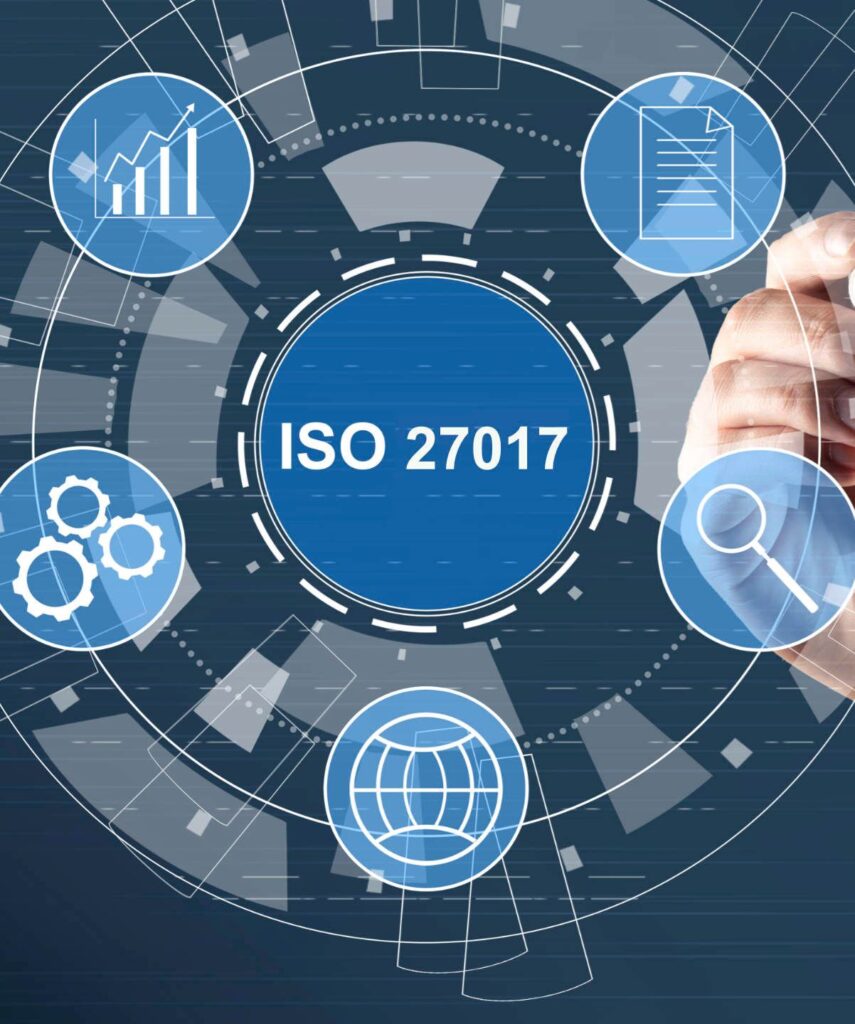ISO 27017

What is ISO 27017?
ISO/IEC 27017 is a security standard specifically designed for cloud computing environments. It applies to both cloud service providers and users, aiming to create a more secure cloud experience and minimize security risks.
Developed by the International Organization for Standardization (ISO) and the International Electrotechnical Commission (IEC), ISO 27017 builds upon the ISO/IEC 27002 standard, which provides best practices for information security management.
Benefits of ISO 27017?
There are several benefits to implementing ISO 27017, both for cloud service providers (CSPs) and cloud service customers:
For Cloud Service Providers (CSPs):
- Enhanced Security: ISO 27017 provides a framework for implementing strong security controls specifically designed for cloud environments. This helps CSPs proactively manage information security risks and prevent data breaches.
- Increased Customer Trust: By achieving ISO 27017 certification, CSPs can demonstrate their commitment to data security to potential customers. This can be a major competitive advantage in the cloud market.
- Reduced Reputational Risk: Data breaches can be very damaging to a CSP’s reputation. ISO 27017 helps CSPs mitigate this risk by ensuring they have robust security measures in place.
For Cloud Service Customers:
- Improved Data Security: ISO 27017 helps customers ensure their data is stored and processed securely in the cloud. This is especially important for organizations that handle sensitive data.
- Clearer Responsibilities: The standard clarifies the roles and responsibilities of both CSPs and customers regarding cloud security. This helps to avoid confusion and disputes.
- More Informed Decisions: By understanding the security posture of their CSP, customers can make more informed decisions about using cloud services.


Benefits of ISO 27017?
There are several benefits to implementing ISO 27017, both for cloud service providers (CSPs) and cloud service customers:
For Cloud Service Providers (CSPs):
- Enhanced Security: ISO 27017 provides a framework for implementing strong security controls specifically designed for cloud environments. This helps CSPs proactively manage information security risks and prevent data breaches.
- Increased Customer Trust: By achieving ISO 27017 certification, CSPs can demonstrate their commitment to data security to potential customers. This can be a major competitive advantage in the cloud market.
- Reduced Reputational Risk: Data breaches can be very damaging to a CSP’s reputation. ISO 27017 helps CSPs mitigate this risk by ensuring they have robust security measures in place.
For Cloud Service Customers:
- Improved Data Security: ISO 27017 helps customers ensure their data is stored and processed securely in the cloud. This is especially important for organizations that handle sensitive data.
- Clearer Responsibilities: The standard clarifies the roles and responsibilities of both CSPs and customers regarding cloud security. This helps to avoid confusion and disputes.
- More Informed Decisions: By understanding the security posture of their CSP, customers can make more informed decisions about using cloud services.
Our Approach
1. Gap Analysis:
This initial assessment identifies how your current cloud security practices align with the ISO 27017 controls. It highlights areas where you need to make improvements.
2. Develop a Plan:
Based on the gap analysis, create a plan outlining the steps needed to achieve compliance. This includes defining a timeline, allocating resources, and assigning responsibilities.
3. Implement Controls:
This involves implementing the missing controls identified in the gap analysis. It might involve updating policies, deploying security tools, or implementing new procedures.
4. Internal Audit:
Before seeking external certification, conduct an internal audit to verify that your implemented controls meet the ISO 27017 requirements. This helps identify any gaps you might have missed.
5. External Certification:
An accredited certification body can conduct a formal audit to assess your compliance with ISO 27017. Upon successful completion, you'll receive an ISO 27017 certification.
6.Continual Improvement:
Maintaining ISO 27017 compliance is an ongoing process. Regularly review your controls, update them as needed, and conduct periodic internal audits to ensure continued adherence to the standard.








